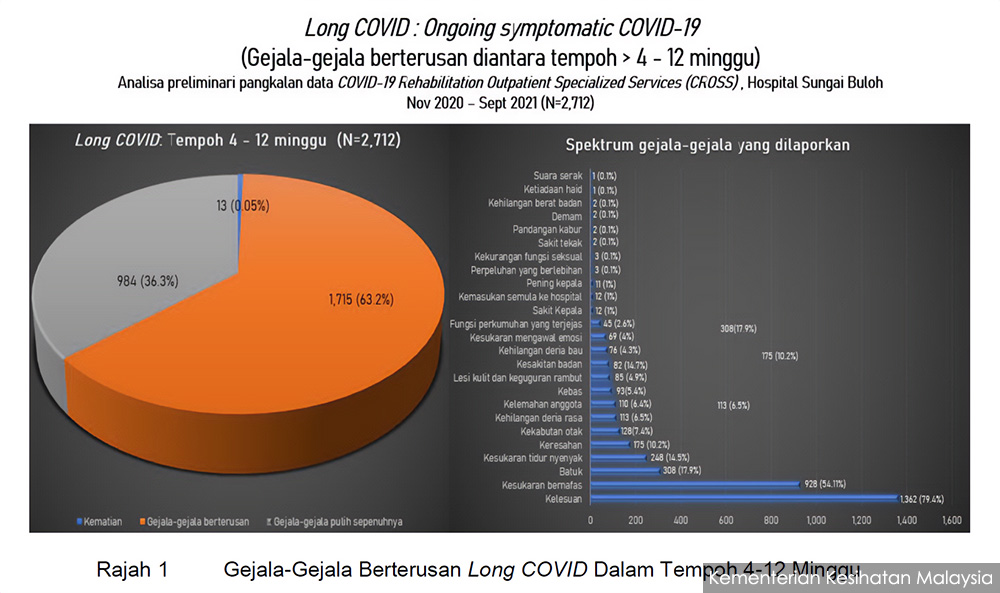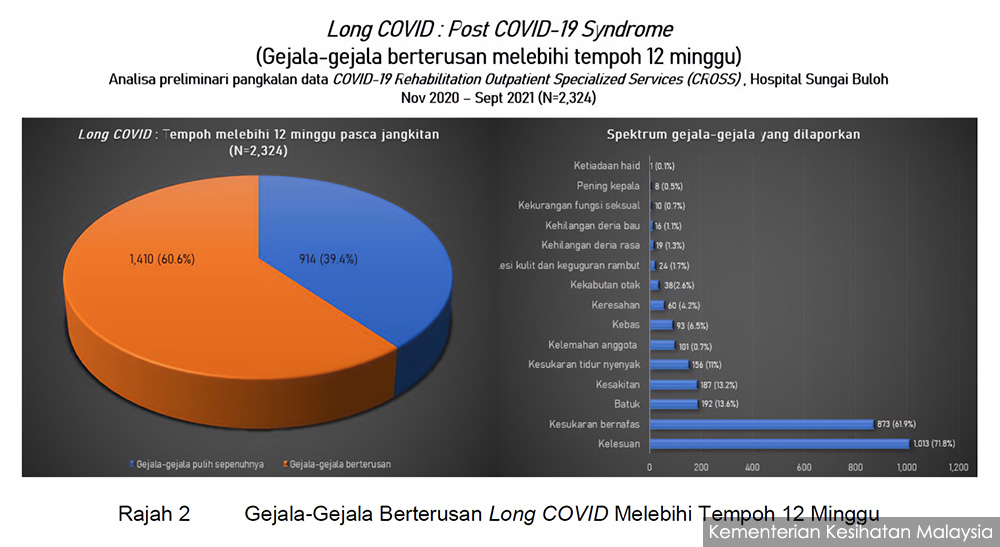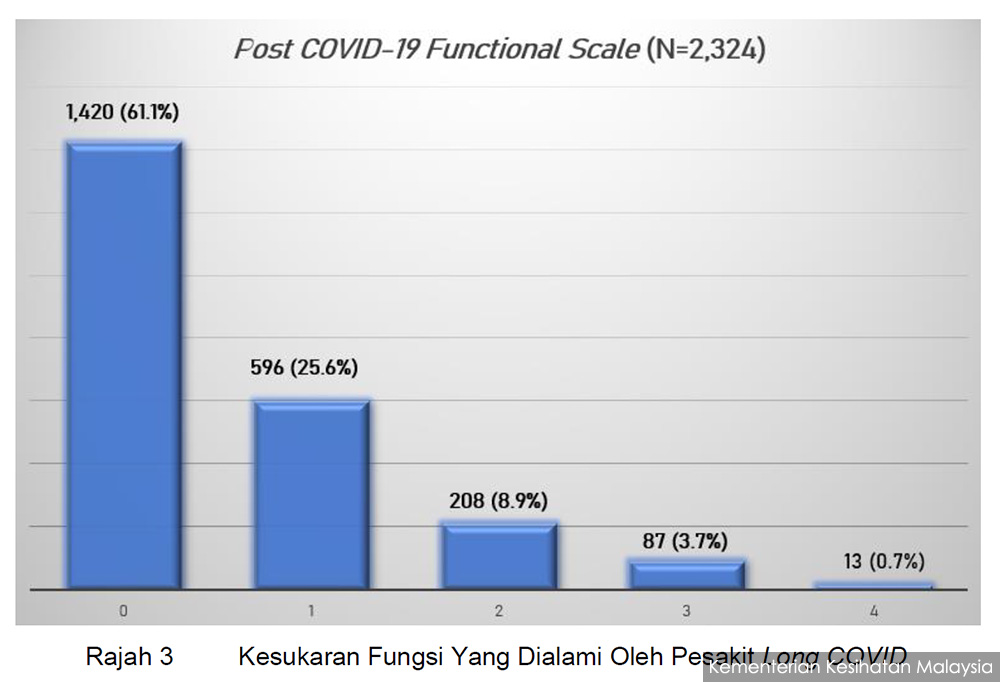The Health Ministry is working with the Human Resources Ministry and other groups to provide better care for people with Long Covid symptoms.
Health Ministry director-general Dr Noor Hisham Abdullah said this includes providing rehabilitation equipment and Socso payments to eligible patients in the future.
In addition, the ministry’s Rehabilitation Medicine Service is collaborating with Socso’s Tun Abdul Razak Rehabilitation Centre in Malacca and its branch at Ara Damansara hospital to improve rehabilitation programs for Long Covid patients as part of its ‘Return to Work’ program.
This would provide patients with comprehensive rehabilitation care, he said.
Meanwhile, the ministry is collaborating with NGOs such as Mercy Malaysia and Care, Share, and Circle to prepare patient education materials, which would come in both electronic and print forms and cover all major languages in Malaysia.
Noor Hisham said that while most Covid-19 patients in Malaysia would make full recovery, some experienced persistent symptoms and even a severe loss of function that makes patients dependent on others for their daily needs.
These patients are categorised according to when the symptoms were experienced after their Covid-19 infection.
“Ongoing symptomatic Covid-19” refers to those experiencing Covid-19 symptoms in the period four to 12 weeks after their infection, while “Post Covid-19 Syndrome” are those who experience symptoms beyond 12 weeks that cannot be explained by an alternative diagnosis.
“Without specific treatment, the condition could drag on and patients will need a long time to recover their full functions. This would indirectly affect the individual’s quality of life following a Covid-19 infection.
“In addition, Long Covid can also have serious implications by increasing morbidity, disability, loss of productivity, and loss of income.
“Its socioeconomic burden is not only felt by Long Covid patients, but also family members, society, and the nation,” he said in a statement today.
Up to Oct 30, he said there were 5,193 patients undergoing rehabilitative treatment and monitoring for Long Covid symptoms, involving 31 government hospitals, four university hospitals, and six private health care facilities.
He shared the findings from Sungai Buloh Hospital’s Rehabilitation Outpatient Specialised Service (Cross), where 2,712 Long Covid patients have been referred for treatment between November 2020 and September 2021.
Of those, 984 (36.3 percent) made full recovery, 1,715 (63.2 percent) are still experiencing symptoms, and 13 (0.5 percent) have died.
“However, a review of the medical records found there are other comorbidities contributing to the deaths, such as cancer that has spread, kidney failure, heart attack, septicaemia, and lung infection,” he said.
Of the 2,712 patients, there are 2,324 who have undergone medical check-ups beyond 12 weeks after their infection, nearly all (97.5 percent) of whom were Category 4 or Category 5 patients.
Category 4 refers to patients who have pneumonia and require supplementary oxygen, while Category 5 refers to patients whose Covid-19 infection has spread to multiple organs and requires ICU admission.
So far, 914 (39.4 percent) of these patients have made full recovery, but 1,410 (60.6 percent) still experience at least one symptom.
The most common symptoms are fatigue (71.8 percent), breathing difficulties during physical exertion (61.9 percent), coughs (13.6 percent), pain (13.2 percent), and insomnia (11 percent).
Most of these Post Covid-19 Syndrome patients (61.1 percent) don’t suffer any loss of function, while 25.6 suffered a negligible loss.
However, there are 208 patients (8.9 percent) who suffered a slight loss of function, 87 (3.7 percent) who have a severe loss but do not require assistance, and 13 (0.7 percent) who suffer a very severe loss and require assistance from others.
- Mkini






No comments:
Post a Comment
Note: Only a member of this blog may post a comment.